Synopsis:
Young-soo (Kim, Myung-min) is a priest whose devout life is turned upside down by the abduction of his five year old daughter, Hye-rin (Kim, So-hyun). A ransom is demanded for her safe return and, being willing to do whatever it takes to get Hye-rin back safe and sound, Young-soo arranges to pay the money at a busy ice-rink in the city, but his wife's decision to involve the police (against the kidnapper's express demands) results in the meeting going awry and the kidnapper disappearing without trace, taking Hye-rin with him.
Eight years down the line, Young-soo has lost his faith completely and left the priesthood to become a small-time businessman, and though his wife, Min-kyoung (Park, Joo-mi), still clings to the hope that Hye-rin will one day be found alive (handing out missing persons flyers daily and alerting the police to new abduction cases), Young-soo is utterly convinced that his daughter is dead and has decided to get on with his life, putting Hye-rin firmly to the back of his mind as little more than a fading memory.
However, a chance encounter results in Young-soo receiving a phone call from the kidnapper (Byeong-Chul, played by Uhm, Ki-joon), claiming that Hye-rin is still alive and once again demanding a ransom for her release. With major financial difficulties plaguing his day-to-day life, and with no help from the authorities, Young-soo comes to the realisation that the only way to save his daughter is to take matters into his own hands and find the kidnapper himself...
 |
 |
On the surface, the plot of Man of Vendetta is fairly simple, straightforward and rather generic, but while “race against time” thrillers detailing stories of once respected individuals driven to the edge of society (and offered no help from the authorities in their pursuits) are two-a-penny in almost any culture, not least South Korean cinema, Man of Vendetta nonetheless manages to supplant expectations on several occasions, and successfully builds excitement incrementally within its tale.
The film, thankfully, steers clear of any forced upbeat moments, saccharine segments and out of place black humour elements, and the resultant unflinching darkness that pervades throughout allows for some genuinely unpredictable events (and resultant choices) to impact on characters' lives with suitable gravitas.
However, it does have to be said that Man of Vendetta almost tries too hard to be all things to all men, attempting to add more layers to proceedings by balancing character study with pulse-pounding action, and though its efforts on this front are to be commended, sadly a lack of character depth makes it a virtually impossible task.
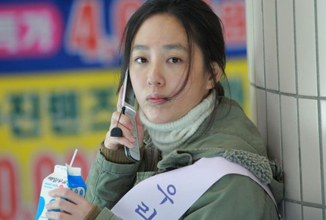 |
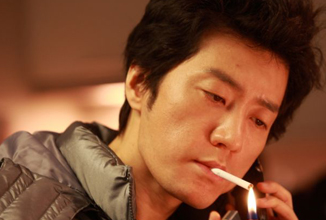 |
There are also several plot points that are rather contrived (such as the chance encounter which leads to the kidnapper finally getting in touch with Young-soo again, after such a protracted period of time) and a number of themes (for example, faith and belief; or indeed the morality of choosing to sacrifice one thing, or person, for another) which are never fully explored or dissected, but though this is rather a shame, certainly (as a "race against time" thriller, at least) Man of Vendetta ultimately largely succeeds.
As with a great many South Korean films (from virtually any genre), it will come as next to no surprise that Man of Vendetta moves towards melodrama in its conclusion, but here too director Woo, Min-ho wisely chooses to quietly twist the expected sentimentality and not only make the final moments darkly bittersweet, but also leave viewers with something to ponder.
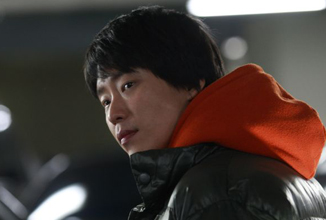 |
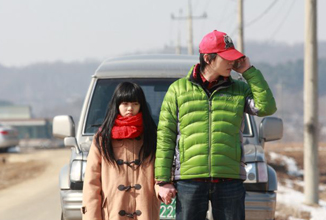 |
By far my biggest criticism of Man of Vendetta isn't in any way the fault of the film itself, but rather the choice of the international title:
"Man of Vendetta" is not only a dull name, but says virtually nothing which actually relates to the plot and utterly ignores the fact that Young-soo's priority is rescuing his daughter at any cost, first and foremost, with any retribution against her abductor ultimately coming because of its necessity in achieving that goal (and serving as somewhat of a bonus), rather than just being the focus of a "vendetta". That said, even the literal translation of the Korean title ("Destroyed Man") isn't much better and one can't help but feel that some reference to Young-soo's abandonment of faith, the plight of his daughter, or even an oblique biblical reference would have done the film much more justice and also served to attract an audience demographic likely to be fired up by this type of movie and its subject matter, with much greater success.
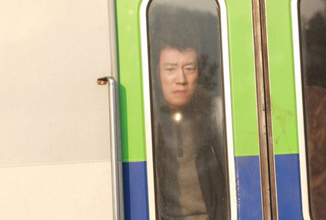 |
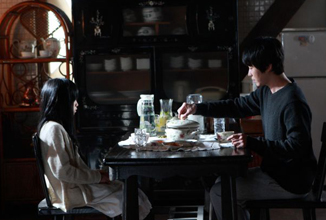 |
Cast:
Kim, Myung-min (as Young-soo) and Uhm, Ki-joon (as Byeong-Chul, the kidnapper) have by far the largest roles in Man of Vendetta and both give polished and accomplished performances throughout.
However, to my mind, the most memorable portrayal in the entire film is that of Young-soo's wife, Min-kyoung, played by Park, Joo-mi. She is on screen for only a short portion of the film but nonetheless manages to deftly show a woman whose life has been utterly devastated, through no fault of her own, and who simply cannot move on or understand anyone who can. Her performance stands head and shoulders above every other in Man of Vendetta and makes her character’s fate all the more poignant, as a result.
Main Cast: Kim Myung-min, Uhm Ki-joon, Park Joo–mi, Kim So-hyun
Summary:
While “race against time” thrillers are two-a-penny in almost any culture, not least South Korean cinema, Man of Vendetta nonetheless manages to supplant expectations on several occasions and, thankfully, steers clear of any forced upbeat moments and saccharine segments to allow for some genuine unpredictability and gravitas to be displayed.
DVD
At the time of writing this review, Man of Vendetta is available as a Limited Edition, First Press, 2-disc, Region 3 (Korean) DVD release, presented with an aspect ratio of 2.35:1, along with a choice of Dolby Digital 5.1 Surround Sound or Dolby 2.0. Full DVD details and extras are given below:
DVD
Details:
Man of Vendetta (DVD) 2-Disc (Limited Edition First Press Korean Version)
Director: Woo Min-ho
Language: Korean
Subtitles: English, Korean, none
Country of Origin: South Korea
Picture Format: NTSC
Disc Format(s): 2-Disc DVD (Dual layer, single-sided)
Region Code: Region 3
Classification: III (Korean Film Classification)
Duration: 114 mins (approx.)
Distributor: Planis
DVD Extras:
Disc 1:
Audio Commentary (with cast and crew)
Disc 2:
'8 Years' Featurette
‘Celestial Sounds’ Featurette
‘A Forced March’ Featurette
‘Two Men’ Featurette
Music Video
Trailers
|











